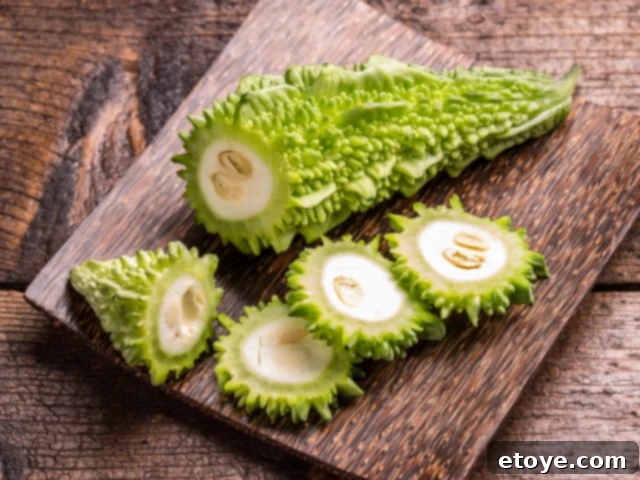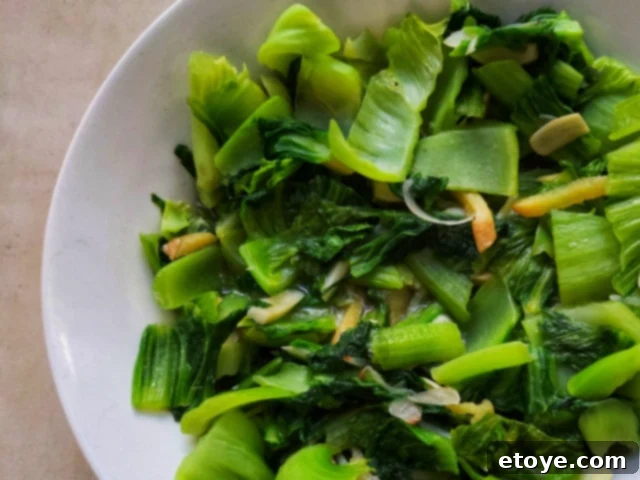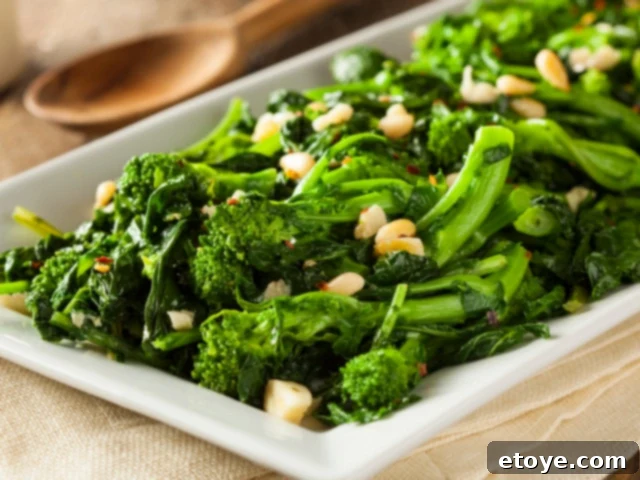For too long, bitter foods have been unfairly overlooked, often receiving a bad reputation in a culinary world obsessed with sweet, savory, and umami. It’s true that the thought of a raw bowl of mustard greens might not immediately trigger a craving for everyone. Yet, these often-avoided bitter flavors hold a profound secret to optimal health, playing a critical role in everything from robust digestive function and a thriving gut microbiome to enhanced immune responses and even mood regulation. While sugary, creamy treats might offer an immediate dopamine rush, it’s the profound and lasting benefits of bitter elements that truly nourish the body. Let’s delve into why embracing bitterness is not just a taste adventure, but a significant step towards holistic well-being.

Unlock Peak Digestion: How Bitter Foods Prime Your Gut
Have you ever noticed the immediate awakening of your senses with a sip of strong green tea or a square of rich, dark chocolate? This isn’t merely a sensory experience; it’s your body’s intelligent response to bitter compounds. When these unique flavors touch your taste buds, they activate specific receptors that act as messengers, sending vital signals throughout your digestive system. These signals effectively tell your gut to “gear up!” It’s an internal command to release essential digestive enzymes, produce stomach acid, and secrete bile, all crucial components for efficient food breakdown. By priming your digestive tract in this manner, bitter foods ensure smoother digestion, significantly improve the breakdown of fats, and enhance the absorption of a wide array of key nutrients, making every meal more beneficial for your body. This wisdom isn’t new; traditional medicine systems across various cultures have advocated for bitter plants for centuries, recognizing their profound ability to balance the body and maintain a healthy, humming digestive system—a belief now increasingly validated by modern scientific research.

Cultivate a Thriving Ecosystem: Bitter Foods and Your Gut Microbiome
The health of your gut microbiome is a cornerstone of overall well-being, influencing everything from your mood and metabolism to your immune system’s strength. If you’re aiming to cultivate a balanced and diverse internal ecosystem, incorporating bitter greens into your diet is an absolute game-changer. These powerhouse foods act as prebiotics, selectively fostering the growth of beneficial bacteria within your gut while simultaneously working to reduce chronic inflammation, a known precursor to many health issues. Emerging research further highlights the incredible potential of a diet rich in bitter elements, demonstrating its ability to fortify the gut lining, thereby reducing the risk of ‘leaky gut’ syndrome. Furthermore, studies suggest that bitter compounds can significantly improve insulin sensitivity, helping to stabilize blood sugar levels and potentially offering a strategic advantage in managing weight and preventing metabolic disorders. Indeed, bitter foods might just be your secret weapon for maintaining a healthy weight and a robust, well-functioning gut.
Elevate Your Well-being: How Bitter Foods Influence Mood and Brain Health
The impact of bitter foods extends far beyond the digestive tract, potentially playing a remarkable role in your emotional and cognitive well-being. While more human clinical trials are underway, compelling animal research indicates that bitter compounds can directly influence the production of serotonin, a critical neurotransmitter often referred to as the “feel-good” chemical, which has a profound impact on mood regulation. This connection between our diet and brain health is a fascinating area ripe for exploration. Consider the invigorating feeling that accompanies the first sip of your morning coffee. While caffeine certainly plays a role, that distinct bitter kick also contributes to waking up your senses and invigorating your mind, signaling a broader connection between bitter tastes and a heightened sense of alertness and vitality. By nurturing your gut, bitter foods indirectly support the gut-brain axis, a bidirectional communication pathway that profoundly influences mood, stress response, and cognitive function, making them a valuable addition to a brain-healthy diet.
Beyond Digestion: The Broad Spectrum Health Benefits of Bitter Foods
If the digestive and mood-boosting benefits haven’t fully convinced you, consider the comprehensive array of health advantages that bitter foods offer for your entire body. These incredible edibles are veritable powerhouses of free-radical-fighting antioxidants, compounds essential for neutralizing harmful molecules and protecting your cells from oxidative stress. Many also possess potent anti-inflammatory properties, which are crucial for combating chronic inflammation—a silent contributor to numerous modern diseases. Beyond this, bitter foods are typically packed with a high density of vital vitamins, minerals, and phytonutrients. Regular consumption has been linked to a reduced risk of serious health conditions, including fatty liver disease and various forms of heart disease, owing to their capacity to improve lipid profiles, regulate blood pressure, and support overall cardiovascular function. In essence, incorporating bitter foods into your diet is a simple yet effective strategy for enhancing your overall health and resilience against chronic illness.
Now that we’ve thoroughly explored the diverse benefits of embracing bitterness, let’s explore some of the most accessible and potent bitter foods you should consider adding to your daily plate.
Top 10 Beneficial Bitter Foods: Your Guide to a Healthier Plate
Ready to embark on a flavorful journey into the world of bitter goodness? These bitter all-stars are not only super nutritional but also come packed with significant perks for your digestive system, immune function, and holistic gut health. Here are some of the top bitter foods to strategically integrate into your meals:
1. Dandelion Greens

These vibrant, slightly peppery bitter greens are a nutritional goldmine, brimming with essential vitamins A, C, and K, alongside vital minerals like calcium and potassium. Dandelion greens are particularly renowned for their ability to stimulate bile production in the liver, a process critical for the efficient breakdown and absorption of dietary fats and fat-soluble vitamins. Beyond digestion, they also possess mild diuretic properties, supporting kidney function and natural detoxification pathways. Enjoy them in a fresh salad with a complementary sweet-savory dressing, sautéed simply with a splash of olive oil and garlic, or discreetly blended into your favorite fruit or vegetable smoothies for a nutrient boost without overpowering the taste.
2. Brussels Sprouts

As a proud member of the cruciferous vegetable family, Brussels sprouts are nutritional champions. They are exceptionally rich in fiber, which supports healthy bowel movements and feeds beneficial gut bacteria, and are loaded with potent antioxidants and unique bitter compounds known as glucosinolates. These compounds are metabolized into health-promoting indoles and isothiocyanates, which are celebrated for their anti-cancer properties and their ability to promote liver detoxification. Roasting Brussels sprouts with a drizzle of olive oil, a pinch of sea salt, and a squeeze of citrus fruits not only caramelizes them to bring out their natural sweetness but also perfectly mellows their inherent bitter kick, creating a delightfully flavorful and healthy side dish.
3. Bitter Melon

This distinctive, bumpy vegetable, known as Momordica charantia, holds a revered place in traditional medicine systems, particularly for its powerful ability to help regulate blood sugar levels. Bitter melon contains active compounds like charantin, vicine, and polypeptide-p, which mimic insulin and have been shown to improve glucose metabolism. Whether stir-fried with other vegetables, incorporated into savory curries, or even juiced, consistent consumption of bitter melon may significantly improve insulin sensitivity, mitigate the effects of high blood sugar, and contribute to reducing systemic inflammation, making it an invaluable food for metabolic health.
4. Mustard Greens

These vibrant, peppery greens are not just a treat for the taste buds but also a powerhouse of nutrition. Mustard greens are generously loaded with antioxidants, including impressive amounts of vitamin C, vitamin K, and beta-carotene, all crucial for immune function and cellular protection. Their characteristic pungent and bitter taste serves as a strong signal to your digestive system, prompting it to increase the production of digestive juices and enzymes. This makes them an excellent companion to any hearty meal, aiding in the efficient breakdown and absorption of nutrients, and contributing to overall digestive vitality. Enjoy them sautéed, steamed, or as a bold addition to mixed green salads.
5. Broccoli Rabe

Often confused with its milder cousin, regular broccoli, broccoli rabe (also widely known as rapini) boasts a significantly higher bitter profile, indicative of its potent health benefits. This robust cruciferous vegetable is exceptionally rich in dietary fiber, a spectrum of vitamins (A, C, K, and folate), and numerous bitter compounds like glucosinolates. These components collectively support a flourishing gut microbiome, bolster the immune system, and aid in cellular detoxification. To temper its intense bitterness while retaining its nutritional integrity, try blanching it briefly before sautéing with generous amounts of garlic and good quality olive oil, creating a classic and highly nutritious Italian-inspired side dish.
6. Dark Chocolate

Yes, good news for chocolate lovers – dark chocolate is on the list! However, the key here is to choose varieties with a high cacao content (70% or higher), as the darker and more bitter it is, the more beneficial it becomes. Rich in flavanols and other powerful antioxidants, dark chocolate actively fights free radicals, reduces inflammation, and has been shown to support cardiovascular health by improving blood flow and reducing the risk of heart disease. It makes for an excellent and satisfying snack or a mindful dessert – just be sure to skip the overly sugary, highly processed milk chocolate varieties to reap its true health rewards.
7. Green Tea

For tea enthusiasts, this is fantastic news! Green tea is a celebrated beverage not only for its refreshing taste but also for its profound health benefits. It is extraordinarily rich in potent antioxidants, especially catechins like epigallocatechin gallate (EGCG), and a variety of beneficial polyphenols that provide significant anti-inflammatory effects throughout the body. Regular consumption of green tea has been scientifically linked to supporting the gastrointestinal tract, improving digestion, and offering robust protection against oxidative stress and cellular damage. Incorporating a daily cup or two of green tea into your routine is a simple, enjoyable way to enhance your overall well-being.
8. Bitter Herbs

Herbal traditions across the globe have long recognized the power of bitter herbs as digestive tonics and overall health enhancers. Ingredients like gentian, wormwood, and chamomile are classic examples of these therapeutic botanicals. Their intense bitter compounds play a crucial role in stimulating the production of digestive enzymes, stomach acid, and bile, which are all vital for optimal nutrient breakdown. Incorporating these herbs, often found in tinctures, teas, or dietary supplements, can significantly help to ease common digestive discomforts like bloating, gas, and indigestion, especially after consuming a large or heavy meal, ensuring more efficient processing of food.
9. Citrus Fruits (Peel and Pith)

While the juicy flesh of citrus fruits like oranges, lemons, and grapefruits is cherished for its sweet or tangy flavors, it’s often the overlooked white pith and brightly colored peel that harbor a wealth of bitter compounds and concentrated nutrients. These parts are exceptionally rich in vitamin C, powerful flavonoids (such as hesperidin and naringin), and other phytonutrients, which collectively provide a robust antioxidant boost and exert mild yet significant anti-inflammatory effects. Don’t discard them! Grating fresh citrus zest into your dressings, baked goods, stir-fries, or even infusing it into water can impart a wonderful aromatic flavor while delivering a potent dose of these beneficial bitter compounds.
10. Apple Cider Vinegar

A staple in natural health circles, apple cider vinegar (ACV) possesses a distinct, mildly bitter, and acidic profile with a powerful impact on digestive and metabolic health. Its primary active compound, acetic acid, is known for its ability to stimulate digestive juices, particularly stomach acid, which is essential for breaking down food and absorbing minerals. Furthermore, ACV has been widely studied for its capacity to support healthy blood sugar regulation by improving insulin sensitivity, especially when consumed before meals. Incorporate a splash into your homemade salad dressings, use it as a tangy marinade, or simply mix a tablespoon into a glass of water for a refreshing and health-boosting pre-meal drink.
Embracing Bitterness: Making Bitter Foods Delicious and Enjoyable
If the mere thought of munching on bitter greens still feels like a culinary chore, don’t despair – integrating these healthful foods into your diet can be a surprisingly delightful experience. The key lies in strategic pairing with complementary flavors that balance and enhance their unique taste profile. Try drizzling rich olive oil and a savory-sweet dressing (perhaps a balsamic vinaigrette or a citrus-honey blend) over a generous plate of fresh brassica vegetables like broccoli rabe or mustard greens for a harmonious start. A sprinkle of vibrant pomegranate seeds can add a beautiful pop of sweetness, a delightful textural contrast, and an extra dose of vitamin C. Or, for a classic and effective approach, incorporate a splash of apple cider vinegar into your salad dressing; this not only boosts the flavor profile but also gives your digestive system a friendly and immediate nudge.
Furthermore, don’t underestimate the profound power of bitter herbs. Consider digestive tonics or tinctures made with ingredients like gentian or chamomile, which are often used in dietary supplements specifically formulated to support robust digestion, particularly after consuming a large or indulgent meal. These can be a convenient way to harness bitter benefits without direct food consumption.
Remember, the appreciation for bitter flavors is often an acquired taste. It’s perfectly acceptable to start slow and gradually introduce these foods into your diet. Begin with milder options or integrate them into dishes where other flavors can soften their intensity. For instance, try incorporating some cruciferous vegetables into a flavorful stir-fry, or create a vibrant salad packed with fresh vegetables, a generous drizzle of high-quality olive oil, and the zesty kick of citrus fruits. You’ll likely be amazed at how quickly your palate adapts and begins to appreciate the complex and beneficial nuances of bitter tastes, transforming what was once perceived as a challenge into a truly rewarding culinary experience.
Now You Know Why Bitter Is Truly Better!
It’s undeniable that bitter foods can initially seem a bit intimidating or unfamiliar to our palates, which have often been conditioned to crave sweetness. However, by giving them a chance and intentionally incorporating them into your diet, you’ll discover a world of profound health benefits that extend far beyond their initial taste. Their crucial role in optimizing gut health, their powerful ability to boost your immune system, and their wide-ranging contributions to overall well-being make them not just worth it, but absolutely essential for a vibrant, healthy life. Embrace the bitter, and your body will thank you.
What bitter foods are you a fan of? How do you creatively incorporate bitter foods into your daily diet? We’d love to hear your insights and tips! Be sure to leave a comment below and let us know.
